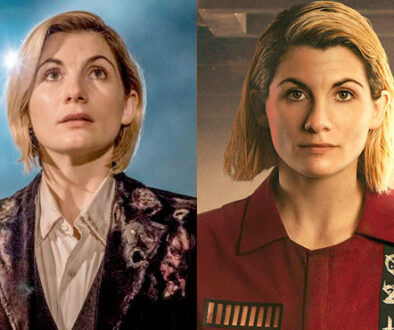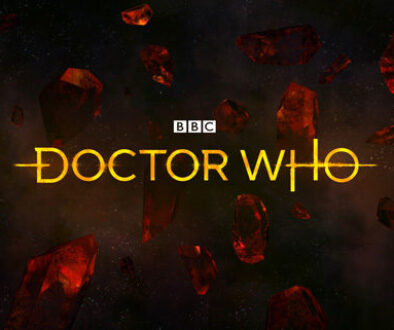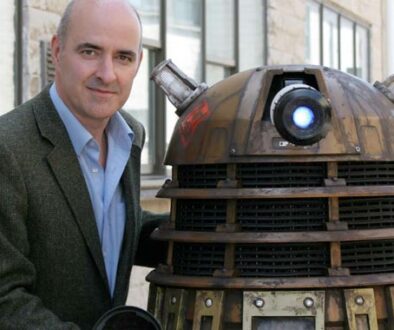2nd Opinion: “The Haunting of Villa Diodati”
JC and Gustaff give their takes on the eighth episode of Series 12.
JC’s Verdict – Not Bad

I’m certainly glad that this week’s episode was a case of “bad trailer, not bad episode” (actually, most of the trailers this year have been lacking, it has to be said. And please drop the awful pop music you use in the TV trailers, BBC. It’s really not fitting for what is meant to be a smart, scary, sci-fi show).
“The Haunting of Villa Diodati” is a bit of a schizophrenic story in that it jumps from a decent, if clichéd, horror historical into a set-up for the Cybermen finale. Maybe I’m in the minority here (given the responses I’ve seen), but I actually thought the first half of the episode was better when it was playing it as a straight-up ghost story. But I’ll get on to the Cybermen half later.
The BBC always does period settings well and that didn’t change here. Credit to director Emma Sullivan for ensuring the episode was dripping with atmosphere. The scares were nothing that we haven’t seen a million times before in horror, but that’s fine as long as it’s done well. One criticism I had on the visual side was, although I liked the concept of them being trapped in a looping house, I think the execution of those scenes could have been better. It looked exactly as it was shot – like someone just walking off camera, and walking straight back!
I’ve already commented in past weeks that one of the main problems with the Chibnall era is that the episodes are overstuffed with characters. That’s still a fault here as it adds a good half-dozen more on top of the regular cast. Once again this means the companions get a short shrift, though this episode does balance the huge roster slightly better than some episodes have this year. While there’s little room for any significant character growth, it features a few nice moments, such as Yaz’s chat with Claire (Nadia Parkes), Ryan playing Chopsticks and, er… Graham struggling to find a toilet, and bumping into ghosts (or were they?).
Jodie Whittaker had a couple of stronger moments this week. The scene where she lamented the loss of past companions to Cybermen was a nice call-back. Then we had the Doctor’s dilemma over whether to sacrifice one person for the greater good, leading to some actual anger. It’s also interesting how much the Doctor’s mind powers have come into play this year. It was once a rarity, but this series it has been employed a lot. Chibnall needs to be careful it doesn’t end up as overused as the Sonic has been.
All of the guest actors gave solid performances that in many ways, overshadowed the regular crew. I’ll admit I’m not overly familiar with the Shelley’s history, so I had a tougher time working out who was who in this episode without looking at the cast list. Of note the two guests that stuck out the most were Jacob Collins-Levy, who portrayed a womanising Lord Byron well. And of course, Mary herself (Lili Miller). She didn’t really play into the story as much as I would’ve thought she would, though her confrontation with the Lone Cyberman was a highlight, and the inspiration for her to write Frankenstein.
This was another episode where the reveal of the Cybermen was undoubtedly meant to be a bigger surprise than it turned out. It actually ended up being another one to put on the list of Doctor Who’s worst kept secrets, leaving that element somewhat deflated. On top of that, we of course had the warning from Jack a few episodes back. This raises the question: how did Jack know about these events? Will we ever find out? There has to be some lasting consequences for it to be worth him warning her in the first place. Not that it will matter anyway, as she still makes the mistake. Will time be changed in the finale?
I’m conflicted on the episode’s portrayal of the Cyberman. On the one hand I like that they tried to make the Cybermen creepier again, by showing more of the horrifying transformation between man and machine. But on the other hand, this particular Cyberman was clearly exhibiting emotions, something that does go against the whole premise of the monster. I also missed the familiar vocal performance from Nick Briggs. If Briggs was involved but uncredited, it didn’t sound like him. I thought the costume looked a little budget in some shots too.
Ultimately though, there’s more to like in this episode, than dislike. Now onwards to the finale… Please don’t mess this up, Chibnall.
Gustaff’s Verdict – The best episode of the Whitaker Era so far?

A murder, a mystery and Mary Shelley…
This season has definitely been a step-up from last series. Despite claims to the contrary, Chris Chibnall has done a complete 180 on most of the creative decisions he made in Series 11. Yet, we have seen a significant rise in episodes being written around various present day socio-political topics such as: climate change, anti-capitalism, pollution and mental illness. You’d be forgiven for confusing current Doctor Who with Captain Planet. Maybe that’s why I consider “The Haunting of Villa Diodati” to be perhaps the best episode the Whitaker era has produced so far, surpassing “Nikola Tesla’s Night of Terror“…it’s just a Doctor Who story trying to be a classic Doctor Who story.
Maxine Alderton’s script is a right ol’ cracker that combines the usual spooky tropes found in most haunted house stories but also throws in that unique sci-fi spin Doctor Who has made famous. The vase is sent smashing across the room leaving the audience to suspect poltergeists or telekinesis, but it’s later revealed to be just an imperceptible man having a mental breakdown. The villa becomes a mobile maze which also manages to give us some good visual tomfoolery. The rest of the script has an excellent pace with a tense atmosphere and a fantastic showdown with a Lone Cyberman.
The reveal of the Cyberman and his subsequent usage feels so different from regular portrayals that he stands out to the audience and makes us wonder why this Cyberman in particular is so full of emotion. The raw energy and constant frustration with which Patrick O’Kane plays the role is a particular highlight. His presence is intimidating and a perfect fit in this house of horrors.
I found almost every character entertaining. Lord Byron trying to flirt with the Doctor and her complete shutdown of his advances made for a few good laughs. John Polidori’s willingness to duel is made funnier after we see how easily he is taken out. Claire and Mary come across as the weakest of the cast. I especially found Mary to be a dull counterpart to Big Finish’s version played by Julie Cox. In fact for most of the episode I kept wondering where Mary was, only clicking later that she was this dull person going on about her baby. Definitely a waste of the character.
The highlight of the episode is naturally the Doctor’s confrontation with her companions. Her speech is poignant and truthful, but in an uncharacteristic turn, the episode chooses to present the two arguments as equal instead of one-sided, as has become the norm. Ryan’s thought process puts you in the mind of the Doctor, specifically her Sixth, Seventh, Ninth and Twelfth incarnation, who were all pragmatists. Ryan is correct that it isn’t fair to sacrifice billions for the sake of one person, while the Doctor highlights that they can’t quantify the damage Percy’s premature death will do to the timeline and that score might be even higher. Both are valid arguments that push the dilemma into a grey zone.
My only real criticism of the episode is how the events of this story overwrite Big Finish’s audio series featuring Mary Shelley. There, Mary meets the Eighth Doctor on this night and sets off on adventures with him, gaining inspiration to write Frankenstein from another lone Cyberman in The Silver Turk. One, if not the best Cybermen stories in Doctor Who.
In Spyfall, the Doctor wiped Ada Lovelace’s memory of their meeting which had the accidental effect of not creating a plot hole in Big Finish’s The Enchantress of Numbers, in which the Fourth Doctor meets an older Ada. So I don’t know why the same couldn’t even be attempted here with a small throwaway line. Sure Big Finish is still niche, but a lot of this story seems inspired by Mary’s Story and The Silver Turk, much like how “Dalek” takes its inspiration from Jubilee. The only difference is the latter two can co-exist without creating plot holes while this story can’t.
Given the way Steven Moffat treated Big Finish in terms of continuity to the TV series, even tipping his hat off to them in The Night of the Doctor, as well as joining Russell T Davies in lending some of their most beloved creations to the audio company; it feels disrespectful not to at least acknowledge where the inspiration for this story obviously came from. On the one hand Series 12 once again manages to not copy/paste a story from the past…but on the other hand it didn’t.








